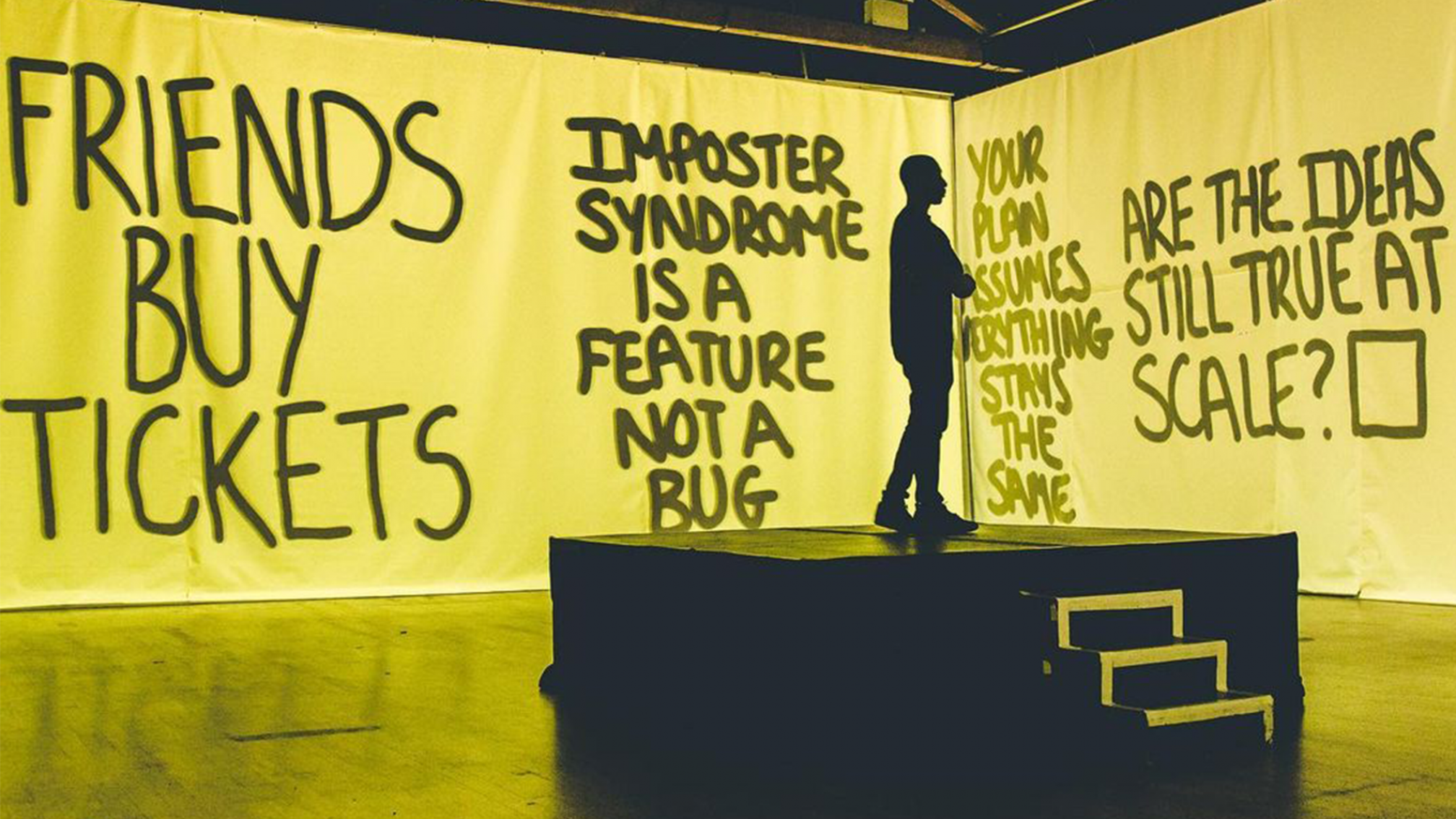 FEATURES
FEATURES
"The work is the network." Elijah shares hard truths on modern music
Ahead of appearances across Australia, the viral critic shares his thoughts on the state of music culture.
Culture appears to move faster than ever before. As the endorsement of a presidential candidate turns into an Olympic blunder which then turns into a short and catchy line about living our lives, it’s easy to feel like our attention spans are shrinking by the minute.
COVID-19 pushed us further online whether we liked it or not, and inspired many of us to take up new skills, hobbies and dreams that we never had time for before. For many, this was music, and a new wave of musicians, particularly DJs, is currently taking over the world one live stream at a time.
For Elijah however, putting such thoughts into action meant literally putting them up online. Those operating in music, particularly dance music, will no doubt have seen Elijah’s calling card - a bright yellow tile with a handwritten phrase designed to challenge, inspire or critique music culture and industries with often very alternative views or statements.
Elijah’s re-emergence back online, following a hiatus in the wake of the death of George Floyd and the ensuing BLM conversation, in many ways could not have come at a better time. In a period where inspiration was lacking but desire was endless, his comments on DJ culture, the music industry, and a need for creatives to multi-hyphenate themselves in a post-COVID world, went gangbusters.
Since starting this project, which he simply calls ‘Yellow Squares’, Elijah has been to countless countries around the world to speak his mind and explain some of the most ‘viral’ squares. This ‘tour’, as it were, finally brings him to Australian shores this week, appearing at Bigsound in Brisbane, as well as a series of individual speaking events hosted by Australia’s Electronic Music Conference (EMC).
“I don't want to have to keep on screaming [these things] myself. That's why I don't have any tag in the corner or anything like that,” he shared, as we met over ZOOM.
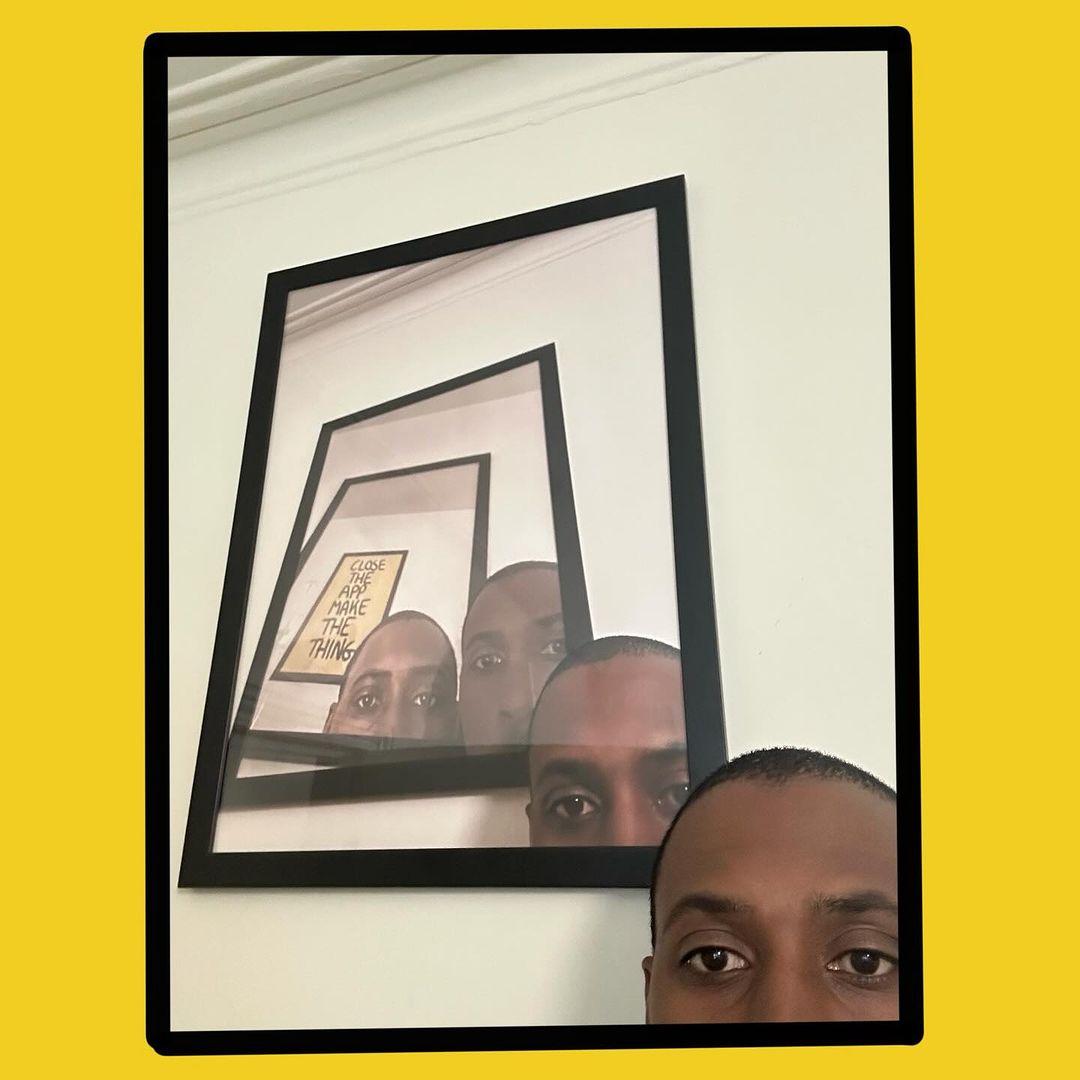
While Elijah’s own career has seen him largely based in his home of the UK, his words and questions, particularly in a time never more clearly connected than ever before, are universal.
“I can't really say COVID aside, but platform wise, this has been the most consistent period of time [for music] for the past 20 years. For the last four years, the platforms haven't even changed. It's been Instagram, TikTok, Spotify, YouTube. For, maybe for the rest of the decade, these things will remain pretty consistent,” he reflected.
Streaming services have been criticised for not providing or supporting a diverse range of music globally, with stats and label partnerships generally seeming to win over the ears of listeners. This is, as Elijah discussed, a global issue for both music lovers & professionals, particularly when it comes to local radio stations.
Outside of his work on his social channels, Elijah has been an artist, manager, and journalist, largely focused on the UK's grime scene. Recently, he penned an article called ‘Why are UK radio stations ignoring Black British music to play recycled American rap?’. To him, this issue is something being paralleled by radio stations everywhere.
“People so heavily on numbers, so they will see the numbers of a new American song and go, “okay, this is the most popular song in the world right now, so we need to play this,” he mused.
“We’re on American social media too… Netflix, Apple, Amazon… we’re always going to be on the back foot to these companies. They dwarf our efforts to promote homegrown culture, talent, music and ideas.”
Elijah’s comments on this mimicked those made about other industries. A monopoly isn’t a healthy means for anything to thrive, whether a market or a culture, but is all too common a word for us to hear.
“When I travel around and I hear the same thing, it's disappointing. It's culturally damaging, right? I want to come to Australia and hear Australian music of all kinds, not just what's popular, but what people think is important.”
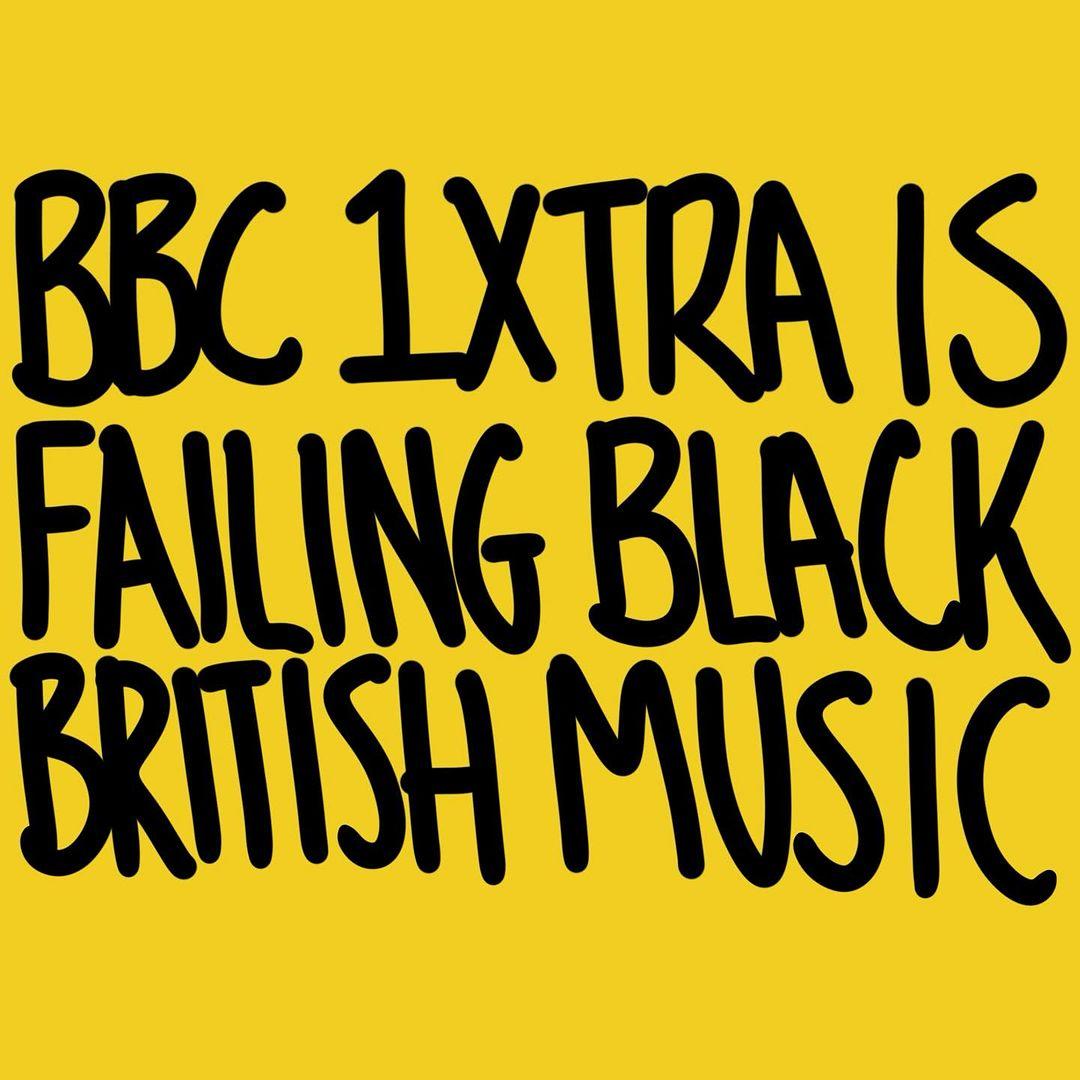
The idea of popularity when compared to “success”, or what art truly represents, is a tension that Elijah plays with regularly. His statements often ask more questions than they answer, but with good reason. In our conversation, this commentary on success, particularly the ways in which people imitate it, didn’t stop at music. “You see this across food everywhere in London,” he said. “There's four burger restaurants on one street. There's 10 coffee shops. When you're opening the 10th, surely you’ve hit the wall creatively.
Radio should be like the antithesis to streaming and to the apps,” he continued. “If I want to listen to the straight hits that are global now, or classic R&B and hip hop, I can turn on Spotify.”
A ‘pack mentality’ view of success is easy to understand. If someone is popular, or ‘good’ at what they do, they should have a following to back that up. Elijah feels, as so many people do, that that kind of attitude towards music is incredibly damaging.
“People lead with social proof of a song being, quote unquote, big or popular, and they say, “this song has got 10 million plays on Spotify, what do you think?” and people go, “oh yeah, that's that's good.” Then the people that said, “hey, check out this song, it's got a thousand streams on Spotify, what do you think?” People are so often like, “oh yeah, it's alright, yeah.”
It's really damaging, especially for small markets, because whatever the most popular song in Australia is… might be 10 million streams, that might be fucking incredible. But then, if you compare it to whatever the biggest song is globally, which might be a billion streams, it looks like that thing is just nothing. Whereas to the people in Australia, that 10 million is like a billion.”
This idea of ‘success’ within music is something that Elijah was quick to discuss as just that, an ‘idea’. Social media has skewed our perception of who we are and what we should be doing, to the point where Australia’s government is now entertaining a ban on social media for people under 16. Elijah worries about how this might impact people’s idea of what pursuing music should look or feel like.
“If you consume media, like if you're just on Instagram scrolling, it looks like everyone is winning and you're not,” he said. “Actually, they're just sharing when they did some work or when they had a shower. For the 300 days in between, what are they doing? Where did they live? What did they eat?”
For electronic musicians & DJs, this ‘lifestyle’, is one that can come as an even more brutal and impactful reminder every year. As the Southern Hemisphere slips into Winter, our local DJs and artists are, increasingly, trying their hand at living and working in Europe and other parts of the Northern Hemisphere, often for months at a time.
DJ culture has seen a huge rise in popularity in recent years. Whether due to a desire to party and socialise reachin new heights in the pandemic, the ease of practicing DJing within our homes (again as a result of the pandemic), or a desire for music with more future-forward sounds than ever before, dance music is a lifestyle that appears to offer much of the best things in life.
As a result, the DJ ‘lifestyle’ is one that, for many people, is incredibly sought after. In Elijah’s view however, a musical lifestyle isn’t one that should necessarily be done full time, and often never is.
“The history of the charts has been mainly one-hit wonders. Literally since the beginning of the charts, I think more than 50% has been people that have entered it once.”
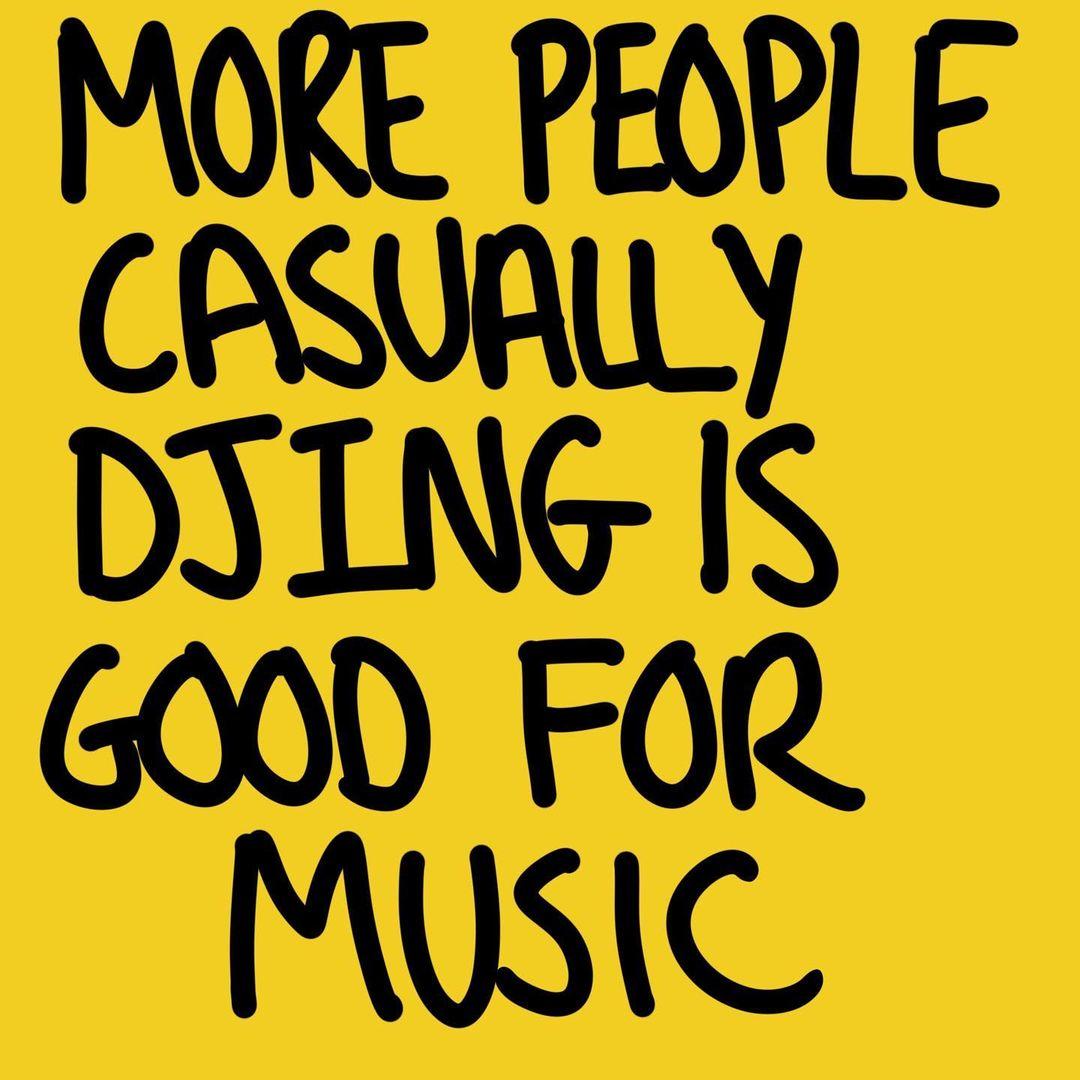
Cancellations of Australian festivals in the last year have been a catalyst for deep conversation around the ‘sustainability’ of Australia’s music industry. A conversation conducted incredibly regularly, particularly given our distance from other ‘western’ touring locations, the focus has often been on how we can support everyone to work full time in music. How can we ensure that artists and industry professionals can earn a living wage and not have to choose another career path? These are questions so regularly asked by government bodies and music groups alike.
When asked about how to create this ‘sustainability’ within music, Elijah acted as he regularly does, as a devil’s advocate. He pointed back not only to the makeup of the charts, and its one hit wonder population, but of the near randomness with which musicians can rise and fall.
“Even a lot of the musicians that say, will come to Australia and headline a festival, they often broke in a different period of time, a different media landscape, different investment cycle, different period of time.
Some random kid is always going to break every three months. There's going to be a kid from Brazil or London or Delhi or something, and they're going to go viral or something's going to happen. But the kid that broke in 2021, February, what's happening with them in August, 2024?
Unless they were able to make enough money to set up their whole life, which most people are not able to in their short little window of time, they're likely to be trying to scramble to find that but random spark again.”
This somewhat nihilistic approach to finances within music was something that Elijah extended to culture more broadly too. “[In one of my squares] is “DJing is not a career’. I could say making music is not a career by default, it's just making music. The same way cooking isn't a career, you're just eating food. It's like part of people's lifestyle, and yes, you could be Gordon Ramsay, but how many Gordon Ramsay's are there?”
While this may come off as a needlessly negative sentiment, one only needs to look to other posts of Elijah’s to see that this point, and many like it, is made to provoke thought about why we choose to engage in music culture in the first place.
“I think it's probably just easier to tell the truth when your income doesn't rely on it solely,” he said, pointedly, as our discussion shifted towards how that same thought applies to music journalism.
In a music culture clearly so driven by results, the idea that you couldn’t turn your passion into a career feels so inherently against the grain of what so many people strive for. The uncomfortable question however, is “will any of us actually be able to support ourselves with our craft?”
Elijah made clear that this position isn’t taken lightly, and is clearly one he’s taken out of necessity, but feels is a positive rethinking of what creativity really is. “Artists having jobs is not a popular position to take, but I'd rather people have some sort of material comfort so they can pay that rent,” he admitted.
“If they're doing something else five days a week, and then say you’re going to do one journalistic piece a month, or one journalistic piece a quarter, it'd be something that you pour all your efforts into rather than [having to] churn out something else.”
Would the art and cultural sector be better if everyone was in a position where they could work three days or four days risk-free and then had the other three days to do art?
[Then] the only time people [would] pop their heads up is when they had something that they were really passionate about.”
While venues close, shows seem to dwindle, and festivals are cancelled, there’s simply just less work available for musicians and people within the industry. This does, however, present both an opportunity and a burden for people willing to go the extra mile in the way they work.
The multi-hyphenate approach.
Many artists' complaints that their management is forcing them to make TikToks is a symptom and outcome of musicians’ needs to do more online to grab attention. Whether it’s being a political activist, a video editor, podcast host, your own manager, whatever it might be, being an artist in 2024 means doing more than just music.
For Elijah, that is where the future of music industry “success” sits.
“My generation grew up learning music on instruments or on programs, and they didn't use After Effects or they didn't use Photoshop because that was just someone else's job. Now video editing has become native to TikTok so it's more intuitive to most people, graphic design has become more intuitive because you use it on Instagram, wherever it's gonna be. The combination of all of those things is going to create effectively like a super artist rather than a great guitarist. We expect you to be great if we're gonna hear you.
The best or the most popular DJ in the world in five years is likely to be halfway music journalist, halfway tech reviewer, halfway into looking at rockets or something.”
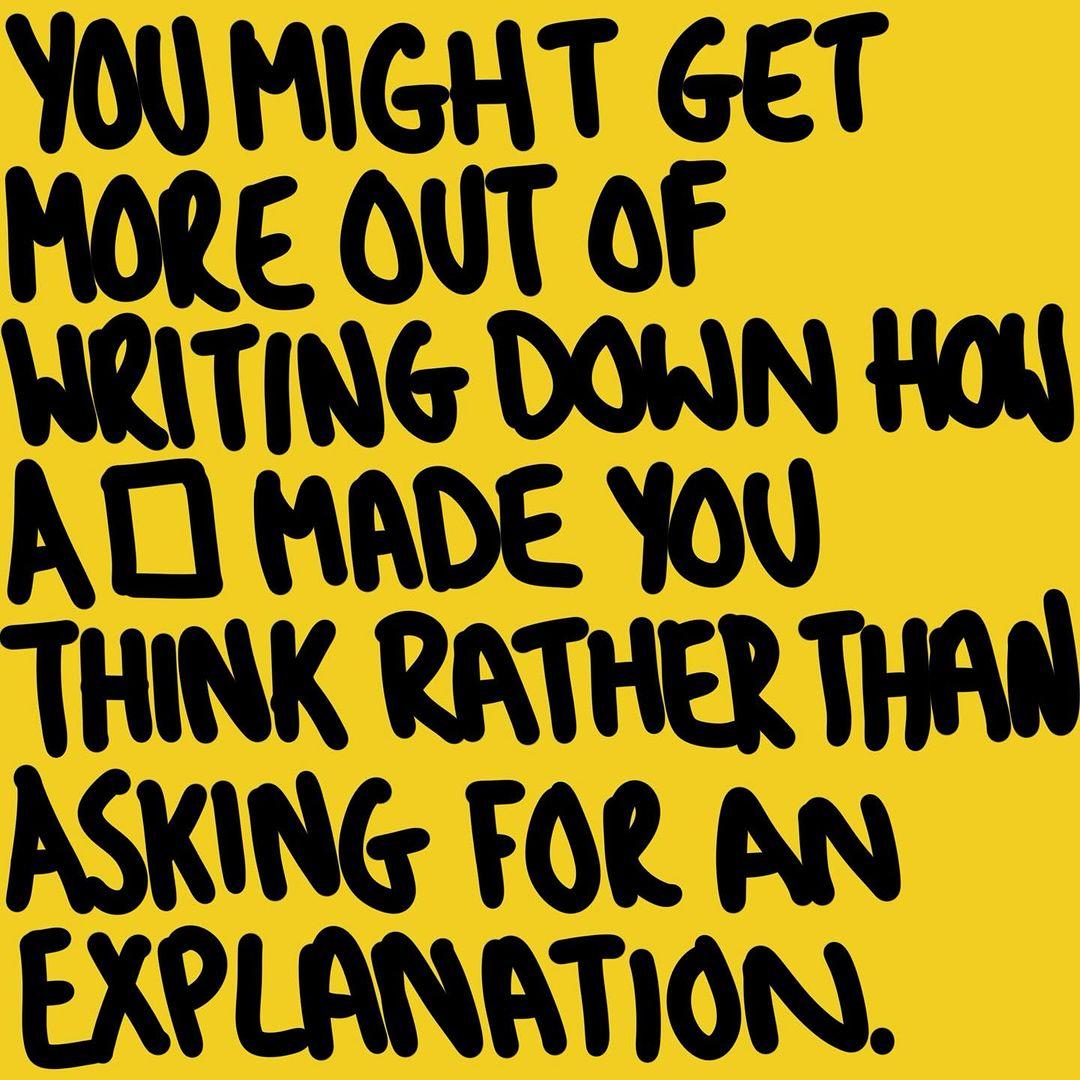
As much as that might sound like a stressful and perhaps entirely needless descent even further online, it’s a trend that is becoming all the more common in music, electronic music especially. In our conversation, Elijah pointed to artists like Fred Again… as ones able to perfectly meld so many different aspects of creativity to provide something entirely new and personal for their fanbase.
As we approached the close of our conversation, and looked with more focus into teh future, it was easy to feel that Elijah’s points were a reaction to what is becoming an even more intensely doomsday-like situation in music industries across the globe. Instead, what I took away was an optimism and realism that stemmed from the reason why any person got into this industry, started to make music or started putting on shows in the first place, because they loved it.
This week sees Elijah starting his tour across Australia. Unlike his thoughts here, or shared on his Instagram, he assured me that it was far more of an open conversation he’s continued to have in his travels, specific to the trends and needs of each location.
“This is a very unique situation where people get to ask questions, where we have discussions and I get to learn about the local scenes. I don't know a lot about what's happening in Australia, and I think a lot of people that are making music or creating art are doing so in isolation. So the opportunity for other people to hear other people with the same questions and with the same challenges will be interesting in itself.
The work is the network.”
It’s clear to me that while Elijah may not have all the answers, he is asking the right questions.
-
Tickets to Elijah's appearances are available via EMC's website.
Jack Colquhoun is the Managing Editor of Mixmag ANZ, find him on Instagram.


